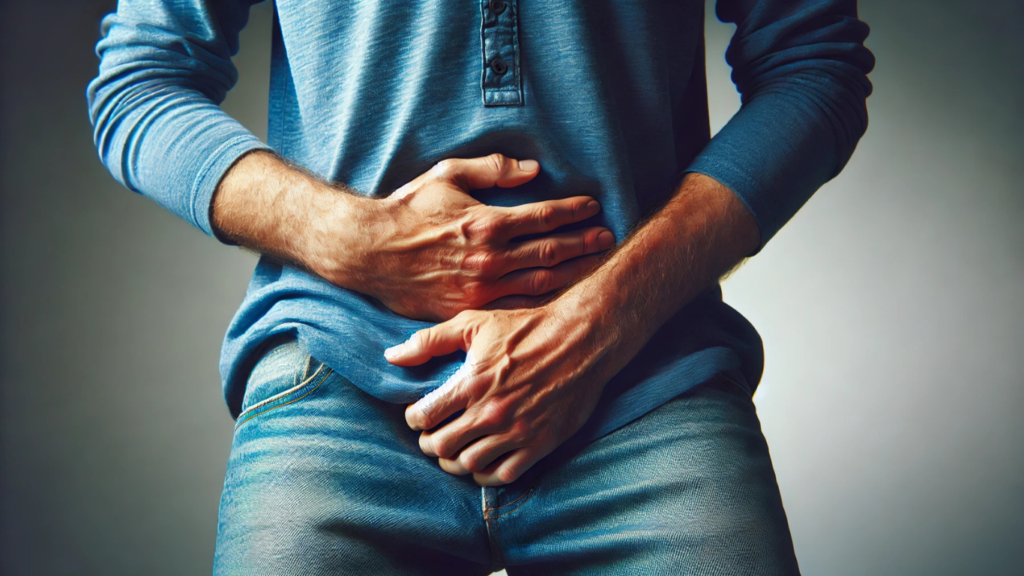Frequently Asked Questions About Prostate Cancer
Everything You Need to Know, Served Fresh and Simple!
Welcome to the FAQ page of The Prostate Pantry, where we dish out straightforward, expert-backed answers to all your questions about prostate health, cancer care, and lifestyle tips. Whether you’re seeking clarity on treatment options or looking for advice on staying healthy, we’re here to serve up the knowledge you need with care and ease.

Understanding Prostate Cancer
What is prostate cancer?
Prostate cancer is a type of cancer that develops in the prostate gland, a small organ that produces seminal fluid in men. It’s one of the most common cancers in men, especially over the age of 50.
What are the early signs of prostate cancer?
Early prostate cancer often has no symptoms. However, signs can include difficulty urinating, blood in the urine, or frequent urges to urinate, especially at night.
What are the risk factors for prostate cancer?
Risk factors include age, family history, race (higher in African American men), and lifestyle factors such as diet and physical inactivity.
How is prostate cancer diagnosed?
Prostate cancer is diagnosed through screening methods like PSA (Prostate-Specific Antigen) blood tests and digital rectal exams (DRE). A biopsy may confirm the diagnosis.
What are the stages of prostate cancer?
Prostate cancer stages range from localized (confined to the prostate) to advanced (spread to other areas). Early stages often have better treatment outcomes.

Prostate Cancer Treatment Options
What are the treatment options for prostate cancer?
Treatment options include active surveillance, surgery, radiation therapy, hormone therapy, and newer approaches like immunotherapy.
Can prostate cancer be treated without surgery?
Yes, treatments like radiation therapy, hormone therapy, or active surveillance are non-surgical options for certain patients, especially in early-stage cancer.
What is active surveillance?
Active surveillance involves monitoring prostate cancer closely without immediate treatment. It’s typically recommended for slow-growing cancers.
How effective is radiation therapy for prostate cancer?
Radiation therapy is highly effective, particularly for localized or early-stage prostate cancer. It uses targeted radiation to destroy cancer cells.
What should I ask my doctor about prostate cancer treatment?
Ask about the best treatment for your stage, potential side effects, recovery times, and how each option could impact your quality of life.

Lifestyle, Diet, and Prevention
Can diet affect prostate cancer risk?
Yes, a diet rich in fruits, vegetables, and whole grains and low in processed foods and red meat can help reduce prostate cancer risk.
What foods are best for prostate health?
Foods like tomatoes (rich in lycopene), nuts, fatty fish, and green tea are excellent for supporting prostate health.
Does exercise help prevent prostate cancer?
Regular exercise helps reduce inflammation and improve overall health, potentially lowering the risk of prostate cancer.
Are there supplements for prostate cancer prevention?
Supplements like vitamin D, selenium, and zinc have been studied, but it’s best to get nutrients from a balanced diet. Consult a doctor before taking any supplements.
How does obesity affect prostate cancer risk?
Obesity increases the risk of aggressive prostate cancer. Maintaining a healthy weight through diet and exercise is essential for prevention.

Emotional Support and Resources
How can I cope with a prostate cancer diagnosis?
Coping strategies include joining support groups, seeking therapy, and maintaining open communication with loved ones.
Where can I find prostate cancer support groups?
Support groups are available through organizations like the Prostate Cancer Foundation and local hospitals. Online forums also offer connections.
How do I talk to family and friends about prostate cancer?
Be honest and open about your diagnosis and treatment plan. Sharing your journey can help build a strong support system.
What resources are available for prostate cancer patients?
Resources include educational materials, financial assistance programs, and counseling services from organizations like the American Cancer Society.
How can I manage stress during prostate cancer treatment?
Stress can be managed through relaxation techniques like meditation, yoga, and engaging in hobbies that bring joy and relaxation.
Reach Out To Us
Looking for more information or curious about how we can help? Connect with us by clicking the button below!
